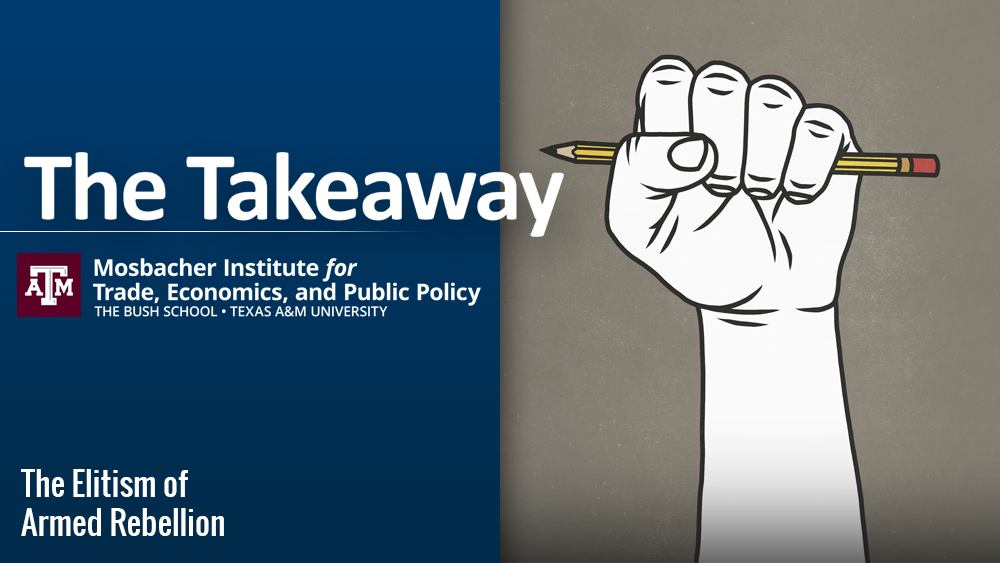
Civil wars are the most common form of warfare today, yet we have little systematic information on the leaders of rebel organizations. A new research tool helps fill that gap.
Civil wars are the dominant form of warfare today, and while some information is known about the more colorful, or violent, rebel leaders, many leaders of non-state militant groups remain obscure. In the latest issue of The Takeaway, “The Elitism of Armed Rebellion,” Bush School of Government faculty member Reyko Huang reveals a new dataset, the first of its kind, containing biographical information on 425 top leaders of rebel organizations that fought in civil wars between 1980 and 2011. The issue also describes why this information is important.
Huang writes that “[Leader biographies] offer interesting insights in their own right, but once systematically arranged in a cross-national dataset, they can also help explain important political outcomes in international politics.” One insight that emerges from the data is that rebel leaders constitute a rather elite and well-educated group, many of whom have international and family connections that they can target for support.
The Takeaway is a publication of the Mosbacher Institute for Trade, Economics, and Public Policy at the Bush School of Government & Public Service at Texas A&M University.

